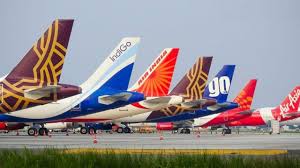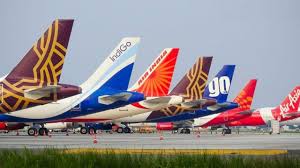
Tuesday was anticipated to see India continue to dominate the Paris Airshow as Air India finalised a massive order for 470 aircraft from Airbus and Boeing, according to sources familiar with the situation.
It was the greatest agreement ever announced in terms of the quantity of planes when it was first outlined in February. However, it was eclipsed by Indian rival IndiGo's purchase for 500 Airbus narrowbody aircraft on the first day of the Paris air show.
Indian airlines' efforts to keep up with the world's fastest-growing aviation market—which serves the largest population—have broken previous industry records, despite the fact that producers are having trouble meeting output targets because of supply chain hiccups.
However, some analysts are worried that airlines might be acquiring too many jets to compete for the same passengers.
250 Airbus planes and 220 Boeing planes were part of Air India's tentative agreement. The Boeing contract included 190 737 MAX aircraft, 20 787 Dreamliners, and 10 mini-jumbo 777X aircraft, while the Airbus portion included 210 A320neo narrowbodies and 40 A350 widebodies.
The total acquisition will include 495 Airbus jets once an additional 25 are leased, an Airbus executive stated at the time.
On Tuesday, the businesses declined to comment.
\
As traffic recovers from the pandemic and airlines seek to lessen their environmental effect with newer, more fuel-efficient models, the purchase binge strengthens indications of a robust worldwide demand for civilian aircraft.
Short- and medium-haul narrowbody planes have seen the highest demand, but engine manufacturer Rolls-Royce reported on Tuesday that the long-haul widebody market was also rebounding rapidly.
However, in light of increased costs, a lack of parts, and a lack of experienced workers, planemakers and their suppliers continue to worry about their capacity to fulfil burgeoning order books.
The largest constraints on the engine supply chain, according to Lars Wagner, CEO of MTU Aero Engines, are workforce shortages and issues with casting manufacturing.
Air India, with its maharajah mascot, was previously renowned for its opulently adorned aircraft and first-rate service, but as its financial difficulties grew in the mid-2000s, so did the airline's goodwill.
Its revival under the Tata conglomerate intends to take advantage of India's expanding traveller base and sizable diaspora, which are now mostly supplied by foreign competitors like Emirates.
The mega-order will also give Air India a better chance to compete with IndiGo, a budget competitor that holds a dominant market share in India and a dominant position in regional routes.
At the same air show on Tuesday, Ethiopian Airlines stated that it would shortly announce an order for roughly 130 Airbus and Boeing aircraft.
According to Reuters, the leasing business Avolon concluded an order for 40 Boeing 737 MAX 8 aircraft, while Philippine Airlines confirmed a commitment to buy nine Airbus A350-1000 widebody aircraft, and Qantas sealed a contract to buy nine Airbus A220-300 aircraft.
(Source:www.reuters.com)
It was the greatest agreement ever announced in terms of the quantity of planes when it was first outlined in February. However, it was eclipsed by Indian rival IndiGo's purchase for 500 Airbus narrowbody aircraft on the first day of the Paris air show.
Indian airlines' efforts to keep up with the world's fastest-growing aviation market—which serves the largest population—have broken previous industry records, despite the fact that producers are having trouble meeting output targets because of supply chain hiccups.
However, some analysts are worried that airlines might be acquiring too many jets to compete for the same passengers.
250 Airbus planes and 220 Boeing planes were part of Air India's tentative agreement. The Boeing contract included 190 737 MAX aircraft, 20 787 Dreamliners, and 10 mini-jumbo 777X aircraft, while the Airbus portion included 210 A320neo narrowbodies and 40 A350 widebodies.
The total acquisition will include 495 Airbus jets once an additional 25 are leased, an Airbus executive stated at the time.
On Tuesday, the businesses declined to comment.
\
As traffic recovers from the pandemic and airlines seek to lessen their environmental effect with newer, more fuel-efficient models, the purchase binge strengthens indications of a robust worldwide demand for civilian aircraft.
Short- and medium-haul narrowbody planes have seen the highest demand, but engine manufacturer Rolls-Royce reported on Tuesday that the long-haul widebody market was also rebounding rapidly.
However, in light of increased costs, a lack of parts, and a lack of experienced workers, planemakers and their suppliers continue to worry about their capacity to fulfil burgeoning order books.
The largest constraints on the engine supply chain, according to Lars Wagner, CEO of MTU Aero Engines, are workforce shortages and issues with casting manufacturing.
Air India, with its maharajah mascot, was previously renowned for its opulently adorned aircraft and first-rate service, but as its financial difficulties grew in the mid-2000s, so did the airline's goodwill.
Its revival under the Tata conglomerate intends to take advantage of India's expanding traveller base and sizable diaspora, which are now mostly supplied by foreign competitors like Emirates.
The mega-order will also give Air India a better chance to compete with IndiGo, a budget competitor that holds a dominant market share in India and a dominant position in regional routes.
At the same air show on Tuesday, Ethiopian Airlines stated that it would shortly announce an order for roughly 130 Airbus and Boeing aircraft.
According to Reuters, the leasing business Avolon concluded an order for 40 Boeing 737 MAX 8 aircraft, while Philippine Airlines confirmed a commitment to buy nine Airbus A350-1000 widebody aircraft, and Qantas sealed a contract to buy nine Airbus A220-300 aircraft.
(Source:www.reuters.com)





